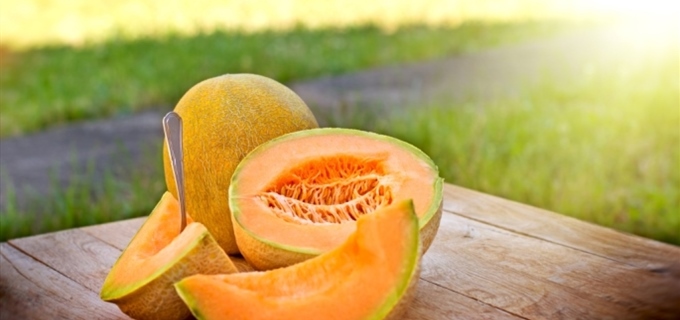Search for a doctor or hospital in your network.


Search for a doctor or hospital in your network.

Get News & Updates Directly To Your Inbox
What’s so special about lycopene? Lycopene gives watermelon its red color and does something more. It may help protect against cardiovascular disease and prostate cancer. Although lycopene is more commonly associated with tomatoes, there is more lycopene in watermelon than any other fresh fruit or vegetable. But hold off on enjoying it icy cold. To get more lycopene from your watermelon, serve it at room temperature.
Whole watermelon stored and served at room temperature can have up to 40 percent more lycopene than refrigerated watermelon. At room temperature, watermelon continues to ripen, producing additional lycopene. Just make sure to refrigerate the watermelon within two hours after cutting it to avoid food-borne illness. If you prefer a cold taste, chill it right before serving.
Of course, watermelons aren’t the only melons packed with nutrients. Cantaloupes are a good source of potassium, along with vitamins A and C. When slicing and dicing your favorites, take a few safety steps. Melon rinds can host harmful bacteria.
When fruit is cut, bacteria on its surface can be transferred to the flesh. To lower your chance of food-borne illness:
From their sugary centers to their sweet juice, melons can attract all kinds of bio bugs that can bring disease with them. If you consider everything melons touch when they are picked, packed, stored and shipped, it’s no surprise they can have all kinds of bacteria growing on them. When you jab a knife into a melon, you can push all the bacteria into its fruity center if you haven’t washed it first.
Remember: wash, wash, wash your fruit before you eat it! And as the CDC suggests: "When in doubt, throw it out." ![]()
Should you suffer a bout of food poisoning and need to see a doctor, remember, where you go matters! Make sure to do your research about ERs versus urgent care now, and know when it's time to be seen in case of emergency.
Originally published 7/11/2016; Revised 2021, 2023
Blue Cross and Blue Shield of Montana, a Division of Health Care Service Corporation,
a Mutual Legal Reserve Company, an Independent Licensee of the Blue Cross and Blue Shield Association
© Copyright 2025 Health Care Service Corporation. All Rights Reserved.
Verint is an operating division of Verint Americas, Inc., an independent company that provides and hosts an online community platform for blogging and access to social media for Blue Cross and Blue Shield of Montana.
![]() File is in portable document format (PDF). To view this file, you may need to install a PDF reader program. Most PDF readers are a free download. One option is Adobe® Reader® which has a built-in screen reader. Other Adobe accessibility tools and information can be downloaded at https://www.adobe.com/trust/accessibility.html.
File is in portable document format (PDF). To view this file, you may need to install a PDF reader program. Most PDF readers are a free download. One option is Adobe® Reader® which has a built-in screen reader. Other Adobe accessibility tools and information can be downloaded at https://www.adobe.com/trust/accessibility.html. ![]()
![]() You are leaving this website/app ("site"). This new site may be offered by a vendor or an independent third party. The site may also contain non-Medicare related information. Some sites may require you to agree to their terms of use and privacy policy.
You are leaving this website/app ("site"). This new site may be offered by a vendor or an independent third party. The site may also contain non-Medicare related information. Some sites may require you to agree to their terms of use and privacy policy.
Powered by Verint